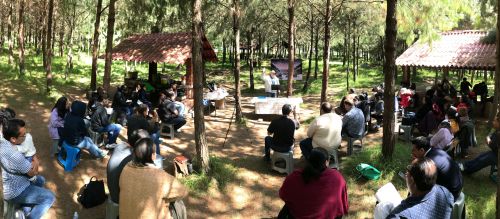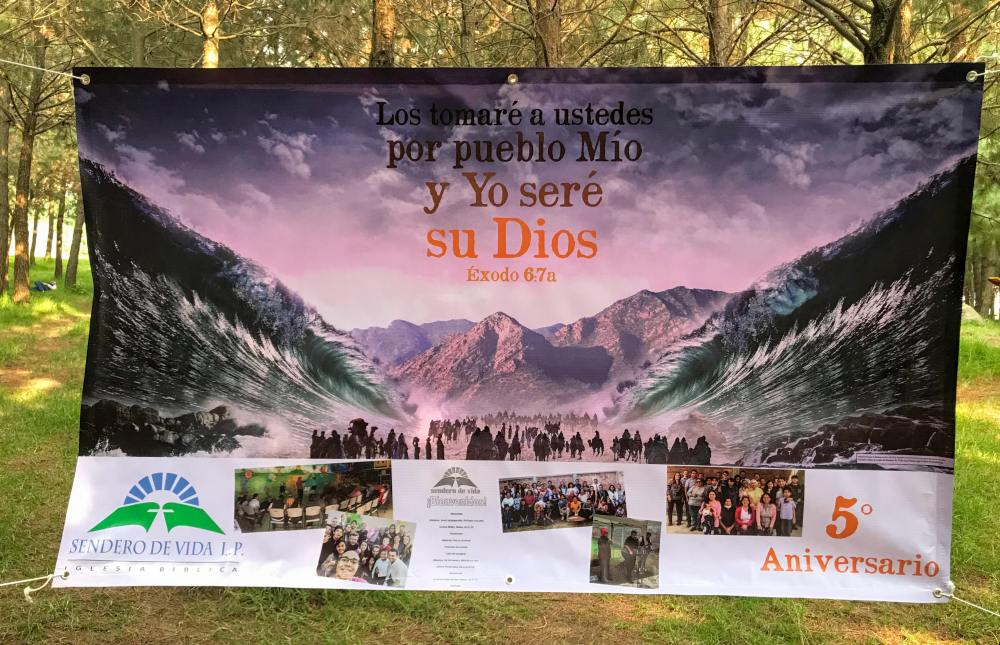5th Anniversary Service!
Last Sunday we celebrated the 5th anniversary of the Path of Life Bible Church Las Palmas (Iglesia Bíblica Sendero de Vida Las Palmas)!

Don’t look too carefully, because 2 or 3 people were missing from the photo… but over 50 of us went out to “Emerald Forest” (about a 45-minute drive away, toward the volcanoes) for a special service. Most were regular attendees, although we had some visitors, which was fun. It was really a great time. Here’s the banner which we had for the day. Since we’re going through Exodus in our sermons now, we used Exodus 6:7a as a theme: “I will take you to be my people, and I will be your God” (see also 2 Corinthians 6:16):
We heard three testimonies from people in the church during the service, which was very encouraging. And we took a break for (a gorgeous) cake (which a friend made)…

Ezequiel led the service. We had a worship time when people chose their favourite songs (all good, except that no one wanted to stop singing! Wait – I guess that’s not a bad thing…). And Rod preached a challenging message on Psalm 90. (Yes, it was Rod and Mayra’s first Sunday back! Welcome back!)

After the service we had a BBQ – grilling of all kinds of meats, green onions, cactus… and someone was walking around selling grasshoppers in a chilli sauce, so I had some of those too. We had lots of time to talk, play soccer/fútbol, ride a horse, or generally enjoy the outdoors. Here’s a shot of some of the youth playing bottle bash:

It was a wonderful Sunday, glorifying our Lord Jesus Christ and celebrating His faithfulness! Please continue to pray for this young church, that we would all grow in our love for the Lord in the year ahead. Who knows what He has in store? All I know is, He will still be faithful!
See more pictures at Rod’s blog here.







